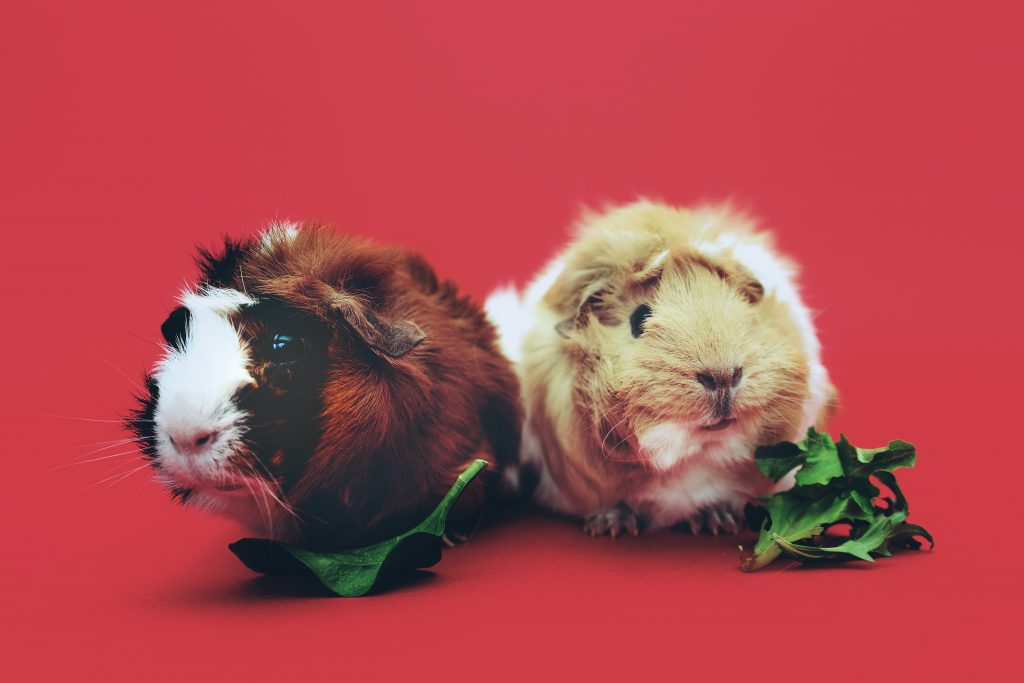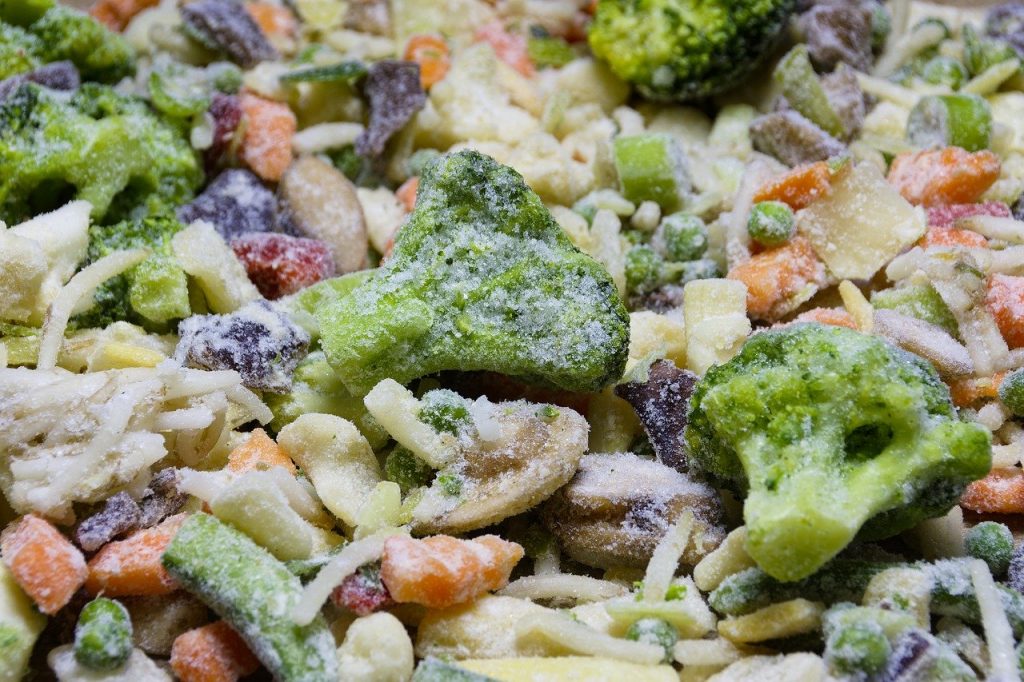Frozen vegetables are good and healthy for human consumption, but have you ever wondered if your guinea pig can eat frozen vegetables? There are some conflicting views on whether feeding your guinea pigs frozen vegetables is ok or not, so it can be hard to figure out whether it’s safe or not.
Vegetables and fruit are especially important to a guinea pig because they cannot synthesize vitamin C on their own, much like humans.
In their natural state, your guinea foraged for fresh vegetables in the wild and ate a variety of plants. It is best to mimic that variety by supplementing their basic nutrition of hay, good quality pellets, and plenty of fresh water with a variety of fresh produce such as vegetables and fruit.
This article will dive into why frozen vegetables are potentially dangerous to feed your guinea pig.
Nutritional Concerns with Frozen Vegetables
Most guinea pig owners and vets would advise staying away from frozen vegetables because the freezing process causes certain nutritional losses that make the food less nutritionally valuable to your cavy than fresh vegetables.
However, the principal concern with frozen vegetables is with the standard blanching process that companies adopt to preserve the vegetables from discoloration. This blanching can remove up to 25% of the vitamin C that is crucial to your guinea pig’s health.

Blanching is the process whereby manufacturers expose the vegetables to high temperatures of water or steam for a brief time and then rapidly cool the vegetables. This blanching process deactivates the enzymes that discolor the vegetables. Many experts say that these deactivated enzymes are also crucial to the digestive process of the guinea pigs.
In addition, some frozen vegetables are first cooked than frozen, and cooked vegetables are not safe for guinea pigs to eat.
Home Freezing your Vegetables
To bypass the enzyme damage from the blanching process, some guinea pig owners adopt to freeze their veggies without the blanching process. If you do freeze vegetables for your guinea pig, don’t cook them before hand and only freeze them a short amount of time.
Preservatives with Frozen Vegetables
Many seemingly innocuous frozen vegetables harbor preservatives that can be harmful to your guinea pig. If you do insist on giving your guinea pig thawed vegetables make sure there are no hidden chemicals that will harm your furry friend.
Bacteria with Frozen Vegetables
Some guinea experts claim that the dormant bacteria multiply quickly in thawed vegetables. However, scientific studies have shown that the bacteria levels on thawed vegetables are much the same as they are on fresh fruit. So bacteria shouldn’t be a big concern for your guinea pig in eating frozen vegetables that have been thawed out. The issues above are the more primary concern.
So, Can you Feed your Guinea Pig Frozen Vegetables?
Although some guinea pig owners claim to have fed their pets thawed vegetables occasionally with no negative side effects, fresh vegetables are the safest hands down. The fresh vegetables mimic their diet in their natural habitat, so that is easiest for their body to process.
If you have run out of fresh veggies, you can always have a quick forage for wild greens that they love, such as dandelion greens, chickweed, and clover. If you are in the city, this might not be your best option as foraged city plants can contain contaminants from car exhausts and pollution.
What Vegetables are High in Vitamin C?
Green leafy vegetables such as kale and parsley and yellow peppers are great to feed your guinea pig for Vitamin C. The RSPCA Knowledge Base states that other great herbs vegetables for your guinea pig are:
Can Feed to your Guinea Pig Daily:
- Rocket
- Dandelion greens
- Snow peas
- Borage
- Marigold
- Rosemary
- Parsley
Can Feed to your Guinea Pig a Few Times a Week:
- Carrots and carrot tops
- Fresh Green Beans
- Broccoli
- Cabbage
- Endive
- Kale
- Brussel sprouts
- Silverbeet
- Bell Peppers/Capsicums
Conclusion
Fresh vegetables are the safest option to feed your guinea pig. If your budget allows, organic vegetables are the best. If you have a garden or have access to one, getting fresh vegetables directly from the wild is a great way to spoil your little guinea pig. Just remember to avoid frozen and cooked vegetables as they could be potentially harmful to your pet.

